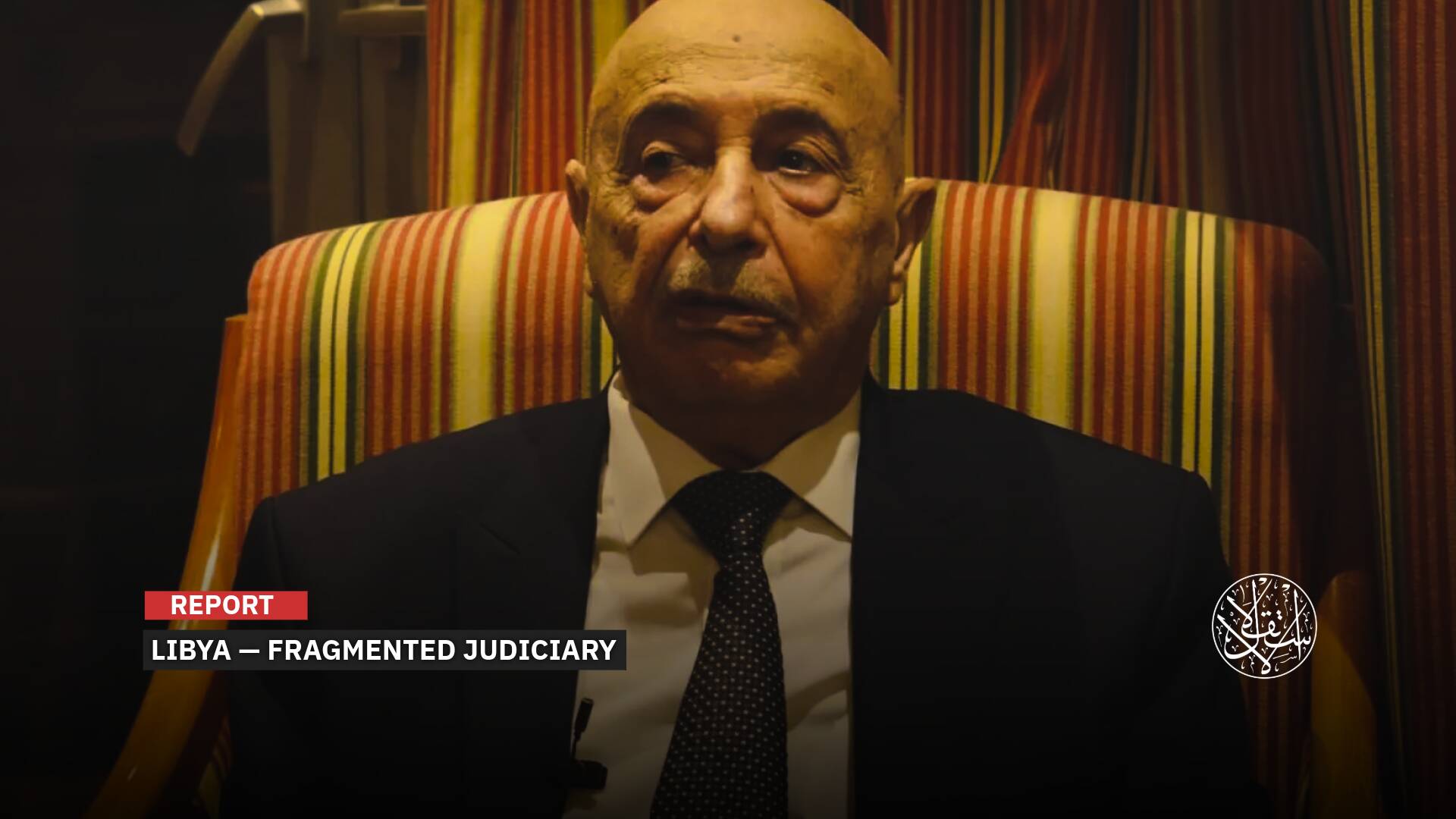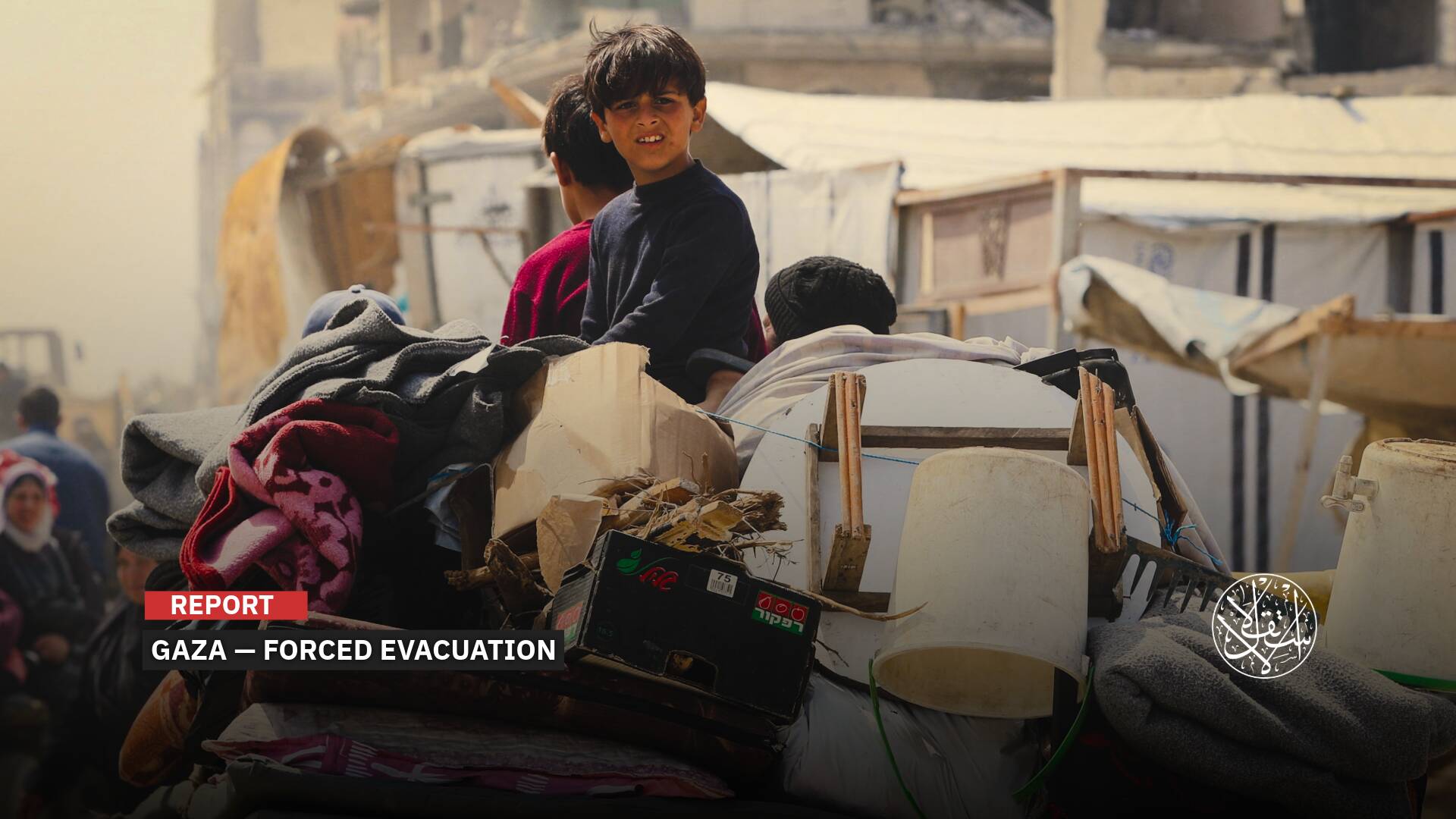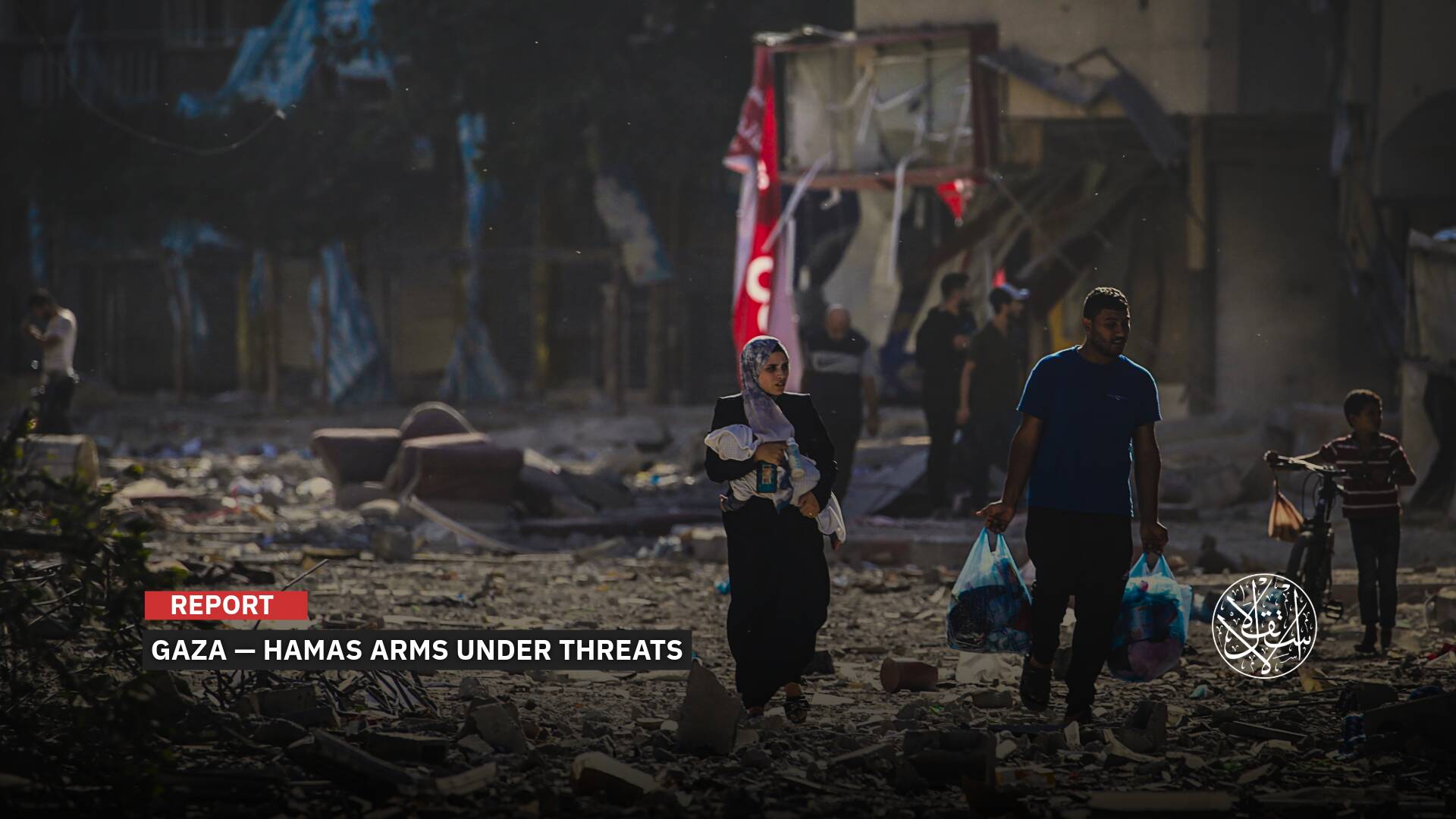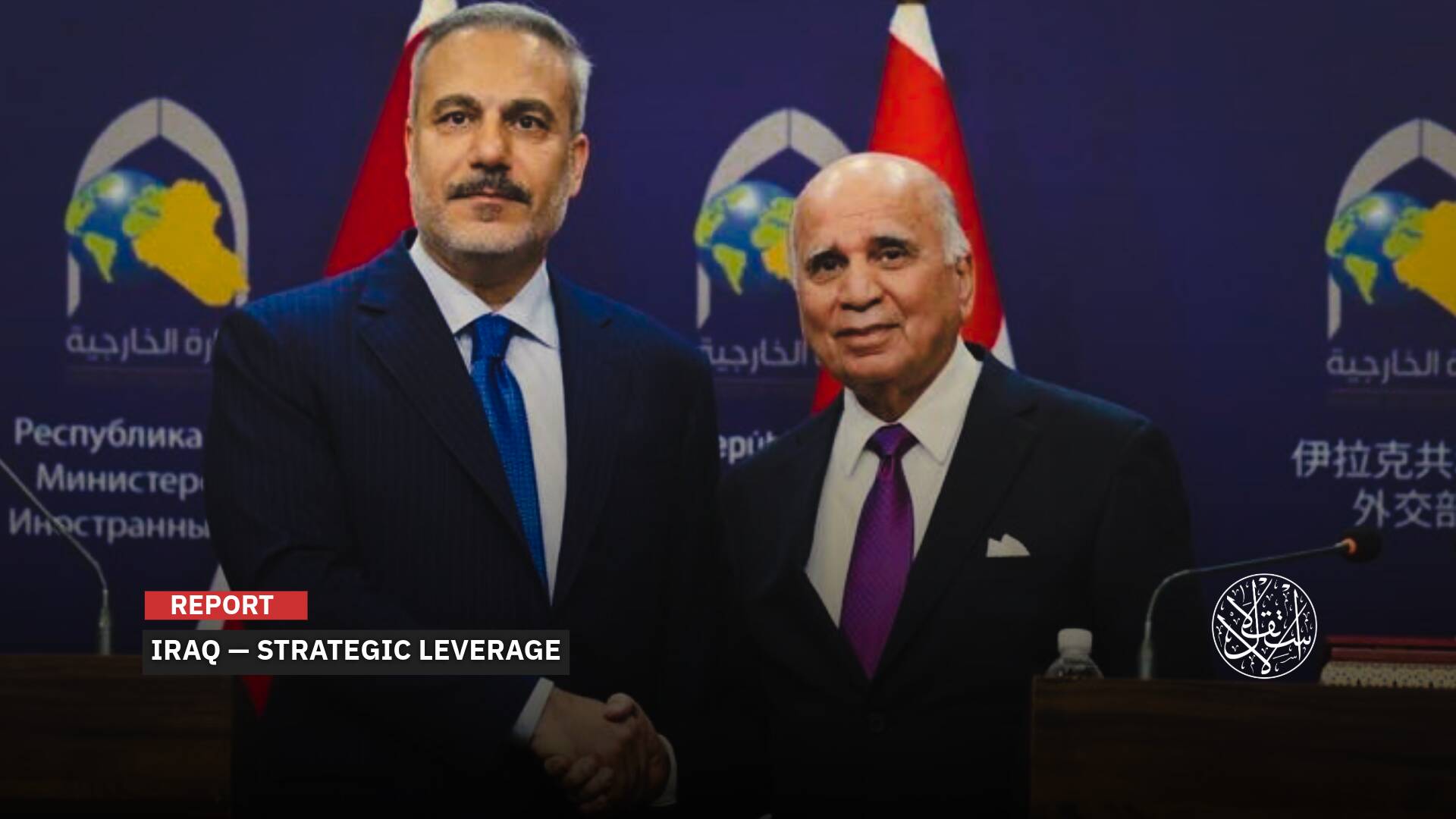How is Germany Criminalizing Pro-Palestinians Activism on its Lands?

Germany took a dangerous step towards criminalizing Palestinian peaceful political activity.
The German Conference of Interior Ministers (IMK) has published a new report by German ministers and senators to lay the legal basis for banning Palestinian groups, although it paves the way for more crackdown on pro-Palestine solidarity activities and even to discuss the move to criminalize this type of peaceful speech and activism.
The report confuses anti-Zionism and anti-Semitism, urges schools to show their students a more positive view of “Israel” in classrooms, classifies human rights reports on Israeli apartheid as “anti-Semitic,” and bans maps that “question Israel’s right to exist,” including maps of historic Palestine.
The report singles out the Boycott, Divestment and Sanctions (BDS) movement, describing it as dangerous and anti-Semitic, claiming it consists of foreign extremists, Islamic “terrorist” organizations, and far-left groups, a claim that has been pushed hard by the Israeli government, despite finding sympathizers in the artistic, cultural, and scientific community.
Legal Prosecution
IMK’s information document explains that failure to comply with their decisions would “break the foundations of collective cooperation and trust [between states] in the future.”
As a rule, interior ministries at the state level operate in accordance with IMK agreements, reporting to each other on the fate of agreements and measures taken.
In media statements, Amnesty International said it “stands against anti-Semitism, which is contrary to human rights. We oppose discrimination, racism, and hate crimes in all their forms, including against Jews or people perceived as Jewish.”
Its statement continued: “All of Amnesty International’s criticisms of the Israeli government are based on international law and on evidence of the great harm and suffering that Israel’s policies cause to Palestinians. Amnesty is critical of the Israeli government, not the Israeli people or the Jewish people.”
The European Palestinian Council for Political Relations (EUPAC) said in a statement that it is clear that these decisions increase restrictions on the freedom of political and trade union action in support of the Palestinian cause, whether by Europeans and Germans themselves or Palestinians.
“Individuals and institutions, which contradicts the German conventions on allowing freedom of expression, as long as they are disciplined by agreed legal standards,” it added.
“It is true that the decisions are not immediately legally binding, and are not currently enforceable, but the conference, consisting of interior ministers and senators from 16 German states, plays an important role in coordinating the activities of local governments in the country, and its decisions are aimed at implementation at the state level,” it added
It concluded: “Although implementation is not the responsibility of the Council of Interior Ministers of the states, but its decisions are politically binding, as they must be passed unanimously according to the rules of the conference.”
At the same time, these decisions may require a media, legal, and human rights campaign to prevent their demarcation and take on an executive dimension on the ground, which threatens these peaceful activities and puts more obstacles to their implementation in response to the pressures of the Israeli Occupation and the blackmail it practices on German politicians for political considerations.
Deceptive View
The report concerns the Boycott, Divestment and Sanctions (BDS) movement, calling it dangerous and anti-Semitic, and claiming that it consists of “foreign extremists, Islamic terrorist organizations and far-left groups.”
This claim has been heavily pushed by the Israeli Occupation government. The movement is also accused of “downplaying the importance of anti-Semitism and Arab and Islamic nationalist terrorism in the Middle East by justifying this rhetoric through academia. BDS sympathizers can also be found in the art and cultural scene as well as in the scientific community,” the report continues.
Germany’s campaign against the BDS movement has intensified for years, accelerated by a 2019 Bundestag resolution classifying it as inherently anti-Semitic, preventing organizations that support the BDS from accessing public funds and public spaces.
The decision enabled universities, state governments, and public institutions to deny Palestinians their right to freedom of expression and assembly.
This censorship contributed to the amplification of anti-Palestinian political sentiment and politics in Germany, which its proponents believed was justified by Germany’s historical responsibility toward the Israeli Occupation due to the Holocaust.
The result is that any criticism of the Israeli Occupation’s oppression of Palestinians is often immediately considered problematic.
Kerem Schamberger, a German communications scientist and political activist, said of the new report: “It is really a dangerous development in an authoritarian direction.”
He said that the adoption by the state, its institutions, and the ruling politicians of this exploitative political definition of anti-Semitism is a deceptive view of the reality of the Occupation, obscuring any criticism of it.
“They are trying to criminalize and punish any pro-Palestinian action,” Schamberger said. “They generally did so with the anti-BDS resolution, but that was only the beginning. Now states are trying to create specific tools that can be used to target international solidarity and pro-Palestinian activists.”
Baseless Claims
In order to counter the BDS movement, the working group that drafted the latest report recommended the development of “appropriate educational media and educational formats for schools,” as well as teacher training, in order to “convey a realistic image of Israel.”
Earlier this month, the German education system strongly pushed for adopting a pro-Israeli narrative in classrooms.
Not only has this led to a lack of critical conversation among students, but it also discourages any adoption of pro-Palestinian dialogue, often leading to a hostile learning environment.
But according to the report, IMK believes a stronger pro-Israeli agenda is needed in schools, as well as “intensive” exchange programs with “Israel.”

However, the report not only pushes for more ways to combat any solidarity with the Palestinians, but it also calls for tougher sanctions on Palestinian activism, with the aim that these sanctions are “as global as possible.”
The working group seeks to develop a model national guide that could be used by anti-Semitic commissioners at the federal and state levels to monitor and track anti-Semitic acts throughout the country.
IMK also proposes to “create a new legal basis” to be able to criminalize activities against “Israel” or “criminally prosecute pro-Palestine groups’ right to exist, including legal regulations against pro-Palestine clubs and activities under the guise of “preventing anti-Semitic gatherings.”
Germany is already committed to blocking pro-Palestinian gatherings. In 2022, Berlin police arrested and detained 170 people during Nakba Day demonstrations, some of whom did nothing more than carry the Palestinian flag or wear a keffiyeh. Berlin police also banned a vigil for the murder of Shireen Abu Akleh planned by Jewish organizers—all in the name of fighting anti-Semitism.











